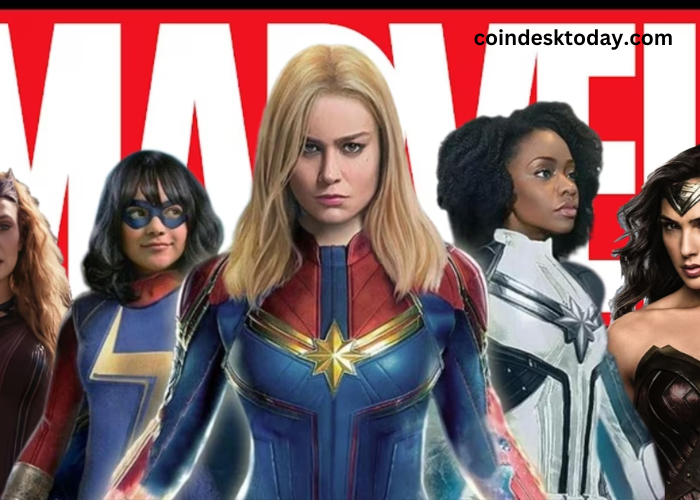The concept of cinematic universes has revolutionized the entertainment industry, creating interconnected stories that span multiple films and even television series. This phenomenon, which has captivated audiences worldwide, is most famously exemplified by the Marvel Cinematic Universe (MCU). However, the evolution of cinematic universes extends beyond Marvel, influencing a wide array of franchises and changing the landscape of modern storytelling. SDMoviesPoint2 offers an extensive range of movies for your entertainment. Explore our diverse selection of genres and enjoy a seamless streaming experience.
The Genesis of the Marvel Cinematic Universe
The MCU’s inception can be traced back to 2008 with the release of “Iron Man.” Directed by Jon Favreau and starring Robert Downey Jr., the film was a critical and commercial success, laying the groundwork for an ambitious project that would unfold over the next decade. The brainchild of Marvel Studios and producer Kevin Feige, the MCU aimed to create a cohesive narrative that connected individual superhero films into a single, expansive storyline.
The key to the MCU’s success has been its meticulous planning and phased approach. Phase One introduced core characters such as Iron Man, Thor, and Captain America, culminating in the ensemble film “The Avengers” in 2012. This movie marked a significant milestone, proving that a shared cinematic universe could achieve both critical acclaim and box office dominance.
Expanding the Universe: Phases Two and Three
Building on the success of Phase One, Marvel Studios continued to expand its universe with Phases Two and Three. These phases introduced new characters like the Guardians of the Galaxy, Ant-Man, and Doctor Strange, while continuing the arcs of established heroes. The narrative complexity increased, with films interweaving plotlines and setting the stage for massive crossover events.
“Avengers: Infinity War” (2018) and “Avengers: Endgame” (2019) represented the pinnacle of the MCU’s storytelling. These films brought together characters from across the universe in an epic showdown against the villain Thanos. “Endgame” shattered box office records, becoming the highest-grossing film of all time and demonstrating the unparalleled appeal of a well-crafted cinematic universe.
Beyond Marvel: The Rise of Other Cinematic Universes
Marvel’s success inspired other studios to create their own cinematic universes. Warner Bros. launched the DC Extended Universe (DCEU) with films like “Man of Steel” (2013) and “Batman v Superman: Dawn of Justice” (2016). Despite a rocky start, the DCEU found success with movies like “Wonder Woman” (2017) and “Aquaman” (2018), proving that audiences had an appetite for interconnected superhero stories beyond Marvel.
Universal Pictures attempted to create the Dark Universe, a shared universe of classic monster movies, starting with “The Mummy” (2017). However, this endeavor faltered, highlighting the challenges of launching a cinematic universe without a solid foundational plan.
Meanwhile, Legendary Pictures introduced the MonsterVerse, featuring iconic creatures like Godzilla and King Kong. Films such as “Godzilla” (2014), “Kong: Skull Island” (2017), and “Godzilla vs. Kong” (2021) established a cohesive world that thrilled fans of monster movies.
The Future of Cinematic Universes
As the concept of cinematic universes continues to evolve, streaming services have emerged as a new frontier. Disney+ has expanded the MCU with series like “WandaVision,” “The Falcon and the Winter Soldier,” and “Loki,” which are intricately tied to the films. This integration of television and film storytelling offers deeper character exploration and more complex narratives.
The Star Wars franchise, also under the Disney umbrella, has embraced this model with series like “The Mandalorian” and “The Book of Boba Fett,” enriching the lore and providing fans with fresh content between major film releases.
Looking forward, the potential for new and innovative cinematic universes is vast. Studios are exploring various genres, from fantasy to science fiction, to create interconnected stories that captivate audiences. As technology advances and storytelling techniques evolve, the cinematic universe model is poised to remain a dominant force in the entertainment industry.
Conclusion
The evolution of cinematic universes, spearheaded by Marvel, has transformed the way stories are told on the big screen. From the meticulous planning and execution of the MCU to the attempts by other studios to replicate its success, this trend has reshaped Hollywood’s approach to filmmaking. As we move into the future, the integration of streaming services and the exploration of new genres will continue to drive the growth and innovation of cinematic universes, offering audiences a rich tapestry of interconnected stories to enjoy.

